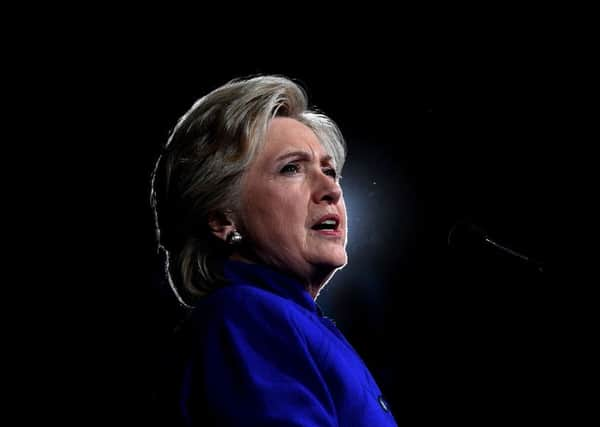Hillary Clinton email leaks were '˜effort to influence US election'


Admiral Michael Rogers, the director of the National Security Agency, told a Wall Street Journal conference the hacking of emails from Mrs Clinton’s campaign chairman John Podesta and the Democratic National Committee (DNC) had not been “by chance”.
He did not name the state but his comments came after The Office of the Director of National Intelligence and the Department of Homeland Security in America last month accused Russia of being behind the leaks.
Advertisement
Hide AdAdvertisement
Hide AdIn response to a question about WikiLeaks, Mr Rogers, who is also the commander of the US Cyber Command, said: “There should be no doubt in anybody’s mind, this was not something that was done casually, this was not something that was done by chance, this was not a target that was selected purely arbitrarily.
“This was a conscious effort by a nation state to attempt to achieve a specific effect.”
Russia has denied any involvement while the whistleblowing website’s founder Julian Assange, who has been living inside the Ecuadorian Embassy in London for over four years, previously defended the release of the emails in statements before polling closed.
He said the source of the emails was not state parties and the website had the right to “receive and impart true information”.
Mr Assange, who has since been interviewed by Swedish prosecutors over a sex allegation he denies, said: “No-one disputes the public importance of these publications. It would be unconscionable for WikiLeaks to withhold such an archive from the public during an election.”